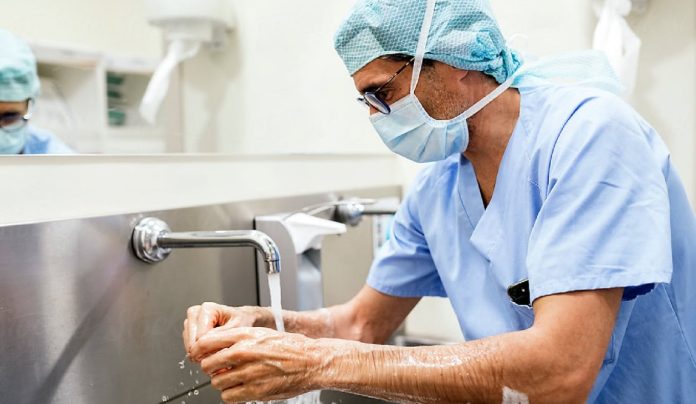Infection control is a crucial aspect of healthcare, especially in hospitals where patients are at a high risk of contracting infections. Infections acquired in healthcare settings can have serious consequences, including extended hospital stays, long-term disabilities, and even death. In order to prevent the spread of infections, hospitals must implement strict infection control measures.
The importance of Infection Control in Hospitals
One of the main reasons why it is important to be careful about infection control in hospitals is because patients in hospitals are often immunocompromised. This means that their immune systems are not functioning properly, making them more susceptible to infections. In addition, many patients in hospitals are elderly, which also puts them at a higher risk for infections. Healthcare-associated infections (HAIs) are a major problem in hospitals, and can lead to longer hospital stays, increased healthcare costs, and even death. That is why it is highly recommended for hospitals to adopt to modern healthcare technologies nowadays.
Hand Hygiene
Hand hygiene is one of the most important measures for preventing the spread of infections. Healthcare professionals should routinely wash their hands with soap and water or, in the absence of soap and water, use an alcohol-based hand sanitizer. Proper hand hygiene can help prevent the spread of infections from patients to healthcare workers and vice versa. In addition, patients and visitors should also practice good hand hygiene to prevent the spread of infections.
UV Hospital Light Disinfection
UV light is an effective method for killing microorganisms, including bacteria and viruses, during hospital disinfection. Proper use of UV light allows for the quick and efficient disinfection of large areas without the need for harmful chemicals or cleaning agents, making it an environmentally friendly option for disinfecting hospital surfaces. Additionally, a UV light for hospital disinfection can disinfect a wide variety of surfaces, including furniture, equipment, and even the air. It does not leave any residue on surfaces after disinfection, which saves time and effort for hospital staff.
Furthermore, some hospitals have already started using UV-C robots to aid in the disinfection process. During the COVID-19 pandemic, these robots have been particularly useful in quickly disinfecting rooms and equipment between patients, helping to prevent the spread of the virus. The use of UV-C robots has been shown to reduce the risk of infection and can complement other disinfection methods.
Overall, UV light and UV-C robots are valuable tools for hospitals to maintain a clean and safe environment for patients and staff. With the ongoing threat of infectious diseases, the use of these methods can play a critical role in reducing the risk of infection transmission within hospitals.
Other Best Practices for Infection Control
Isolation precautions are another important measure for preventing the spread of infections in hospitals. Patients with certain types of infections, such as tuberculosis or MRSA, should be placed in isolation to prevent the spread of the infection to other patients. Hospitals should have policies and procedures in place for identifying and isolating patients with infectious diseases.
Personal protective equipment (PPE) is essential for protecting healthcare workers from infectious diseases. When caring for patients with infectious disorders, healthcare professionals should put on the proper PPE, such as gloves, gowns, masks, and eye protection. PPE can help prevent the spread of infections from patients to healthcare workers and vice versa. It is important for hospitals to provide adequate PPE and ensure that healthcare workers are trained in its proper use and disposal.
Cleaning and disinfection are critical for preventing the spread of infections in hospitals. Hospitals should have policies and procedures in place for cleaning and disinfecting surfaces and equipment. This includes using EPA-approved disinfectants and following proper cleaning protocols. Healthcare workers should be trained in proper cleaning and disinfection techniques to ensure that surfaces and equipment are properly disinfected.
Conclusion
In conclusion, infection control is crucial in healthcare settings, especially in hospitals where patients are at a high risk of contracting infections. Hospital uv light disinfection is an effective method for killing microorganisms, but it should be used in conjunction with other best practices, such as hand hygiene, isolation precautions, PPE, and cleaning and disinfection. By implementing these measures, hospitals can help prevent the spread of infections and protect the health and safety of their patients and healthcare workers.
Disclaimer: This article contains sponsored marketing content. It is intended for promotional purposes and should not be considered as an endorsement or recommendation by our website. Readers are encouraged to conduct their own research and exercise their own judgment before making any decisions based on the information provided in this article.



































